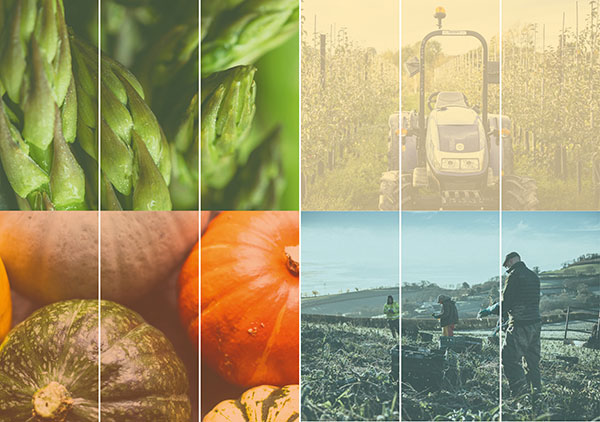“Good things that are out of season are but a ghost of their true selves,” mused author Ambrose Heath in the introduction to his 1932 cookbook Good Food, a month by month account of what’s good to eat.
When Heath wrote these words, affluent Britons were already on board with being able to buy unseasonal foods even if it was for novelty’s sake. Today we have so much choice it is hard to know exactly what is genuinely in season. I know I can always buy airfreighted asparagus, but I still experience a frisson of excitement when I see the first bundles of English asparagus for sale in April and May. It simply tastes better at this time of the year.
Prior to the 20th century, ‘seasonality’ was not the watchword that it is now. Seasonality was a fact of life. You could only eat what could be grown on home soil or was shipped in from the near continent. In medieval Britain many people, irrespective of their social status, had access to small pieces of land on which they could grow fruit and vegetables. Any gluts that exceeded household requirements could be sold at a market, alongside a small amount of imported produce like onions or turnips (basically anything that stored well and could survive the journey relatively unscathed).
Clearly there were times of the year when fresh produce was limited. This could be combatted by the householder through successional planting to ensure a supply of year-round herbs and salad leaves. In some respects, our forebears probably had a greater array of leafy greens than we have today. Horticulturalist John Evelyn lists at least 35 in his salad calendar of 1664.
Cooks in the 18th and 19th centuries could turn to food writers like Elizabeth Raffald and Isabella Beeton for advice on what produce was available and good to eat in a certain month. As in previous eras, most of this would have been grown in Britain.
Undoubtedly, as Britain’s commercial interests expanded with its empire, along with technological advances like refrigeration, so did the variety of produce available. In each of his suggested ‘Foods of the Month’, Heath includes ‘Empire Imported Fresh Fruit’, like pomegranates.
By the 1950s, commercially frozen fruit and vegetables became readily available. Food writer Elizabeth David railed against this innovation, believing the English housewife had been so brainwashed by the deep freeze that she would rather pay over the odds for frozen strawberries in January than buy juicy oranges. “Is it necessary…to eat all this food out of season?” she fumed.
We all like a bit of variety, and there is absolutely nothing wrong with that. Some beloved produce, like citrus fruits and bananas, simply can’t be grown in the UK. I, for one, wouldn’t want to live without lemons. But it is good to enjoy great British produce, like asparagus, when it is in its prime, just as our ancestors did. After all, “food which is in season is the best food of all.” Well said, Mr Heath.
This piece was originally published in the spring print edition of Wicked Leeks. You can read the full magazine for free on Issuu.













0 Comments